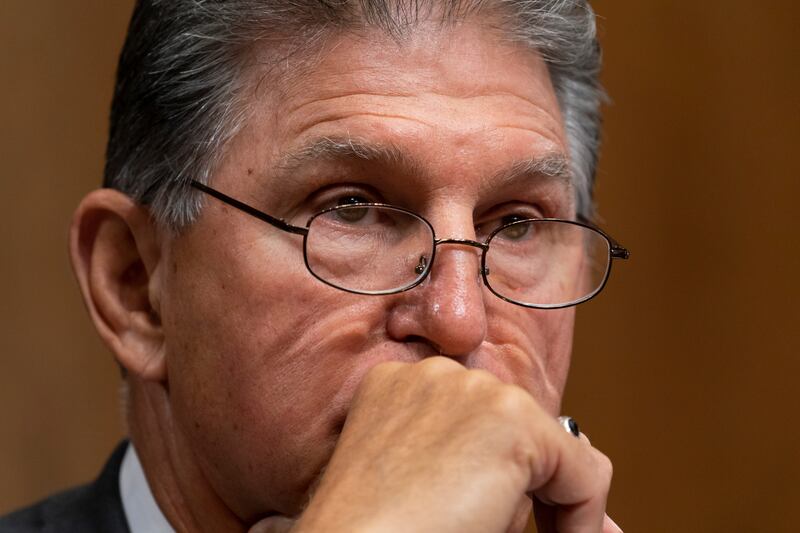In recent weeks, progressive Democrats have grown increasingly frustrated with Senators Joe Manchin (D-WV) and Kyrsten Sinema (D-AZ). They are seen as the primary roadblocks to a wish list of progressive legislation.
The key frustration revolves around the two Senators’ refusal to end the filibuster. That’s a Senate rule requiring 60-votes to move forward and consider legislation. Since the Democrats have only 50 seats in the Senate, the filibuster rule means they must find at least a little bi-partisan support for major proposals.
As framed by progressives, the Democrats won the 2020 election and now control the presidency, the Senate and the House of Representatives. Since voters put them in charge, they should be free to impose a sweeping agenda that would fundamentally change the nation. They can’t understand why two Democratic Senators would stand in their way.
In reality, however, Manchin and Sinema aren’t the real obstacle. The underlying problem is that voters don’t support the progressive agenda.
Consider, for example, the new voting rules proposed by Democrats as the “For the People Act.” Progressives claim the bill is very popular and cite polls to back up that assertion. It’s obviously true that voters would like to clean up the voting process and restore confidence in elections. After all, a majority of voters (56%) believe the wrong person was declared president in both 2016 and 2020.
It’s also true that some provisions of the bill are very popular. For example, most voters support mail-in voting and the idea of making Election Day a national holiday.
But there’s much more to the story. For example, 76% think voters should be required to show photo ID before casting a ballot. And, 74% believe that all ballots should be received by Election Day. Both of those practices are effectively banned by the proposed legislation.
As a result, the polling shows broad support for the stated objectives of the legislation rather than the legislation itself. Yes, people want reforms that makes it easy to vote and restores confidence in our elector process. But they don’t like the reality of the For The People Act. When voters learn that legislation would ban photo ID requirements, just 30% support the legislation. Fifty-three percent (53%) are opposed.
In a rational legislative process, this reality would lead to the creation of legislation that lives up to the rhetoric. That’s precisely the kind of process Senators Manchin and Sinema want to encourage. The effort to attract 60-votes in the Senate would mean dropping the wildly unpopular provisions of the current proposal and working to enact reforms with broad popular support.
The same dynamic can be seen across a number of issues.
· Yes, voters would like to see a commitment to improve the nation’s infrastructure. But that doesn’t mean they support President Biden’s expansive proposal. There’s plenty of evidence that voters would prefer a more narrowly focused alternative paid for at least partly by reducing other government spending.
· Yes, voters are concerned about climate change. But they don’t support progressive policies that might put America’s energy independence at risk. And they don’t support the high costs of the Green New Deal policies. Most voters are unwilling to pay more than $50 a year in higher costs or taxes.
· Yes, voters are concerned about racial justice and equality, but they don’t want to defund the police.
The list could go on and on.
In blocking the dreams of progressive activists, Senators Manchin and Sinema are simply trying to make America’s government work the way it is supposed to work. First, they are representing the views of their own constituents.
Additionally, they understand that our Constitutional system of checks and balances was created specifically to slow the process down. Rather than designing a system to immediately unleash the power of government on the passion of the moment, our founders set up the Constitution to ensure that voters had time to reflect before doing something they might regret later.
One especially notable feature of the Constitution was that senators were to serve for six-year terms. As a result, only one-third are on the ballot in any given election year. In practical terms, that means voters wanting to bring about major policy change must sustain momentum for years at a time.
Ultimately, that’s the real challenge facing progressive activists. The sweeping changes they envision have already been rejected in the court of public opinion.
Scott Rasmussen is an American political analyst and digital media entrepreneur. He is the author of “The Sun is Still Rising: Politics Has Failed But America Will Not.”



